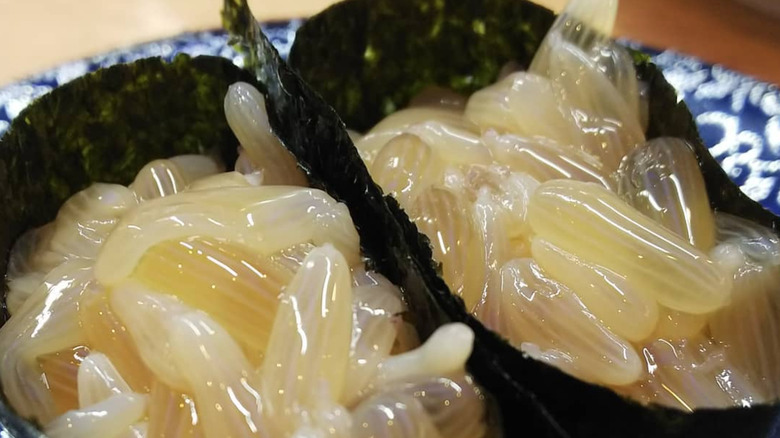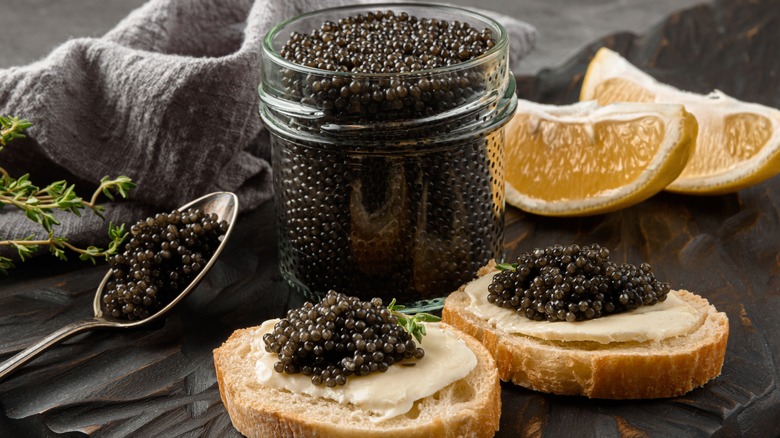How Octopus Eggs Actually Compare To Caviar
Luxurious and indulgent, caviar has long held its place at the top of gourmet excellence. Its delicate pearls, bursting with briny flavor, have adorned the plates of royalty and connoisseurs for centuries. However, a new contender is quietly making its way into the culinary spotlight.
Often referred to as octopus caviar, octopus eggs are captivating palates by offering a unique eating experience. Traditionally consumed in certain cultures, particularly in Japan, where they are often steamed, poached, or deep fried, octopus eggs are finding their way onto the menus of high-end restaurants and plates of curious food lovers worldwide.
With their distinctive and intriguing taste, octopus eggs are a tantalizing alternative to the more familiar realm of caviar. But there are plenty of differences between the two, such as flavor and texture, versatility from a cookery viewpoint, and sustainability. Let's dive into what sets these delicacies apart.
Octopus eggs vs. caviar
Caviar, particularly from sturgeon, is renowned for its delicate and briny flavor. The tiny, glossy pearls burst in your mouth, leaving behind a rich, buttery taste. It has a long-standing culinary tradition and is often associated with high-end dining. Its delicate flavor and texture make it an ideal garnish for dishes like sushi and blinis or served simply on toast. Octopus eggs, on the other hand, have a slightly firmer texture in comparison, which adds an interesting mouthfeel to dishes. Its unique umami taste makes it versatile as an excellent addition to various dishes, whether they include seafood or sushi, or as a standalone delicacy, whether cooked or eaten raw.
When it comes to sustainability and availability, sturgeon, the fish from which the eggs are harvested, has faced overfishing and habitat destruction, leading to significant declines in its population. As a result, caviar prices have soared and sustainable sourcing has become a concern. In contrast, octopus eggs offer a more sustainable alternative as they are not classed as endangered. In fact, the population is booming, according to a study by Science Direct.
While caviar remains the epitome of luxury in the culinary world, octopus eggs are emerging as a fascinating alternative as they quickly captivate the taste buds of adventurous food enthusiasts. Whether you're a connoisseur or someone looking to try something new and exciting, octopus eggs offer a delectable and sustainable option worth exploring.

